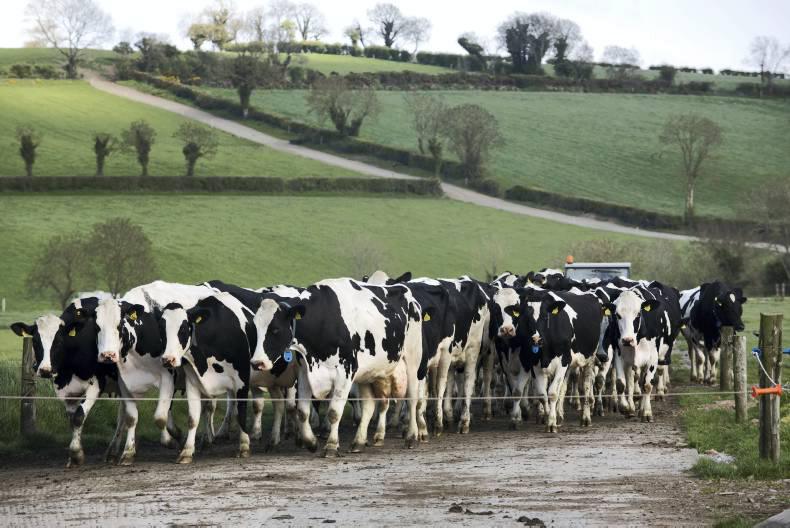“What Ireland has put forward is in no way adequate and falls way short of the extent of the crisis,” Comer told the Irish Farmers Journal.
Every option must be explored and discussed, Comer insists: “At 26/27c/l, dairy farmers are barely holding on. At 21/22c/l, it’s absolute carnage. There is no measure in place that will stop the journey downwards.
“I believe that some voluntary supply-side control is necessary to change the momentum of the marketplace, which is guided to a large degree by sentiment,” he says.
“This must be done in a co-ordinated way. Individual farmers cannot affect the marketplace, as their supply levels are too small.” Instead, farmers must be paid for a temporary cessation of supply. “This must be a voluntary scheme,” said Comer.
“No Irish farmer can be disadvantaged by any measure that is taken. Irish dairy farmers responded to a national plan to expand dairy production and processing, made commitments and investment, and should not now be penalised,” he said.
“What has to be understood is the long lead-in to production levels on-farm. From breeding to first-calving, it’s two and a half years. It’s impossible to foresee how markets will be that far ahead. This is the dilemma: we are producing a perishable product that must be sold on the day, but must execute long-term plans that cannot be easily changed.
“The money is spent, the investment is made, a cow has been bred and calved and must now be milked, you can’t just turn off the tap,” he said.
Regulation needed
Does the current situation mean those who opposed the ending of the quota regime were right? “Quotas were never fit for purpose. I was never supportive of quotas, but neither am I in favour of a completely deregulated market,” Comer says.
Comer makes it clear that there should be no link between any new supply control measures and the old quota regime. “There can be no return to historic measures, this is a crisis, but a crisis of the post-quota age.”
Comer points out some sobering facts on recent production patterns. “Europe has produced an extra 10.5bn litres in 2015, 75% of the extra milk produced globally,” he says.
Comer says it is in Ireland’s interest that we have a voluntary supply constraint. Comer believes the French estimate of €200m for short-term supports for cessation of supply is light: “It will cost much more than that.”
Some of this will have to be funded by money from outside the CAP budget, although there is about €350m of superlevy money that has not been drawn on and could be used. The €400m in the crisis reserve fund should also be accessed.
The justification for such funding comes from the fact that it was the Russian ban as much as anything else that sent dairy markets into a tailspin. “Farmers should not be expected to bear the full economic brunt of what was a political decision.”
Intervention price must also be addressed, he says. “There needs to be a realistic floor price in place. I can’t understand why our Minister didn’t put it to the Council as an Irish proposal.” Such a proposal should be accompanied by a volume increase and improved terms around APS schemes, Comer holds.
“Less than 10% of global milk is traded internationally. Demand is growing, there should be optimism for dairy production in Ireland, but farmers cannot be allowed to go broke waiting for good times,” he concludes.






 This is a subscriber-only article
This is a subscriber-only article










SHARING OPTIONS: